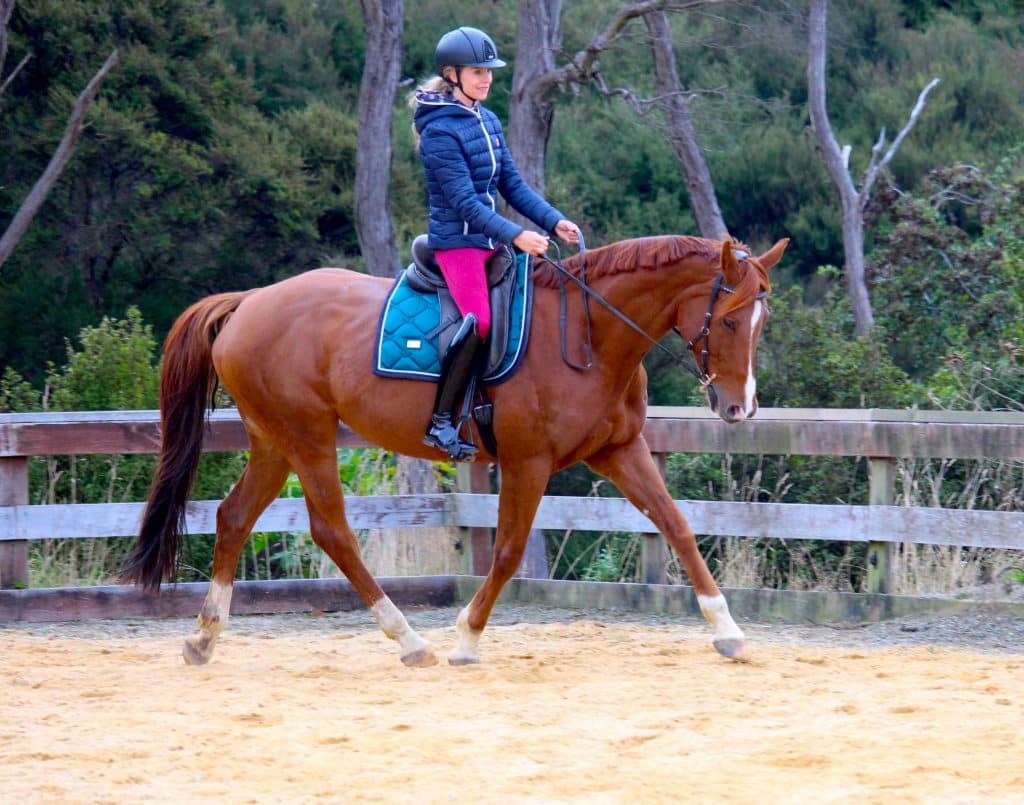On a farm in West Sussex, a visitor stands next to a handsome piebald Irish cob. The horse, named Jenny, is close to 16 hands, with stocky feathered legs, a flowing mane, and a gentle demeanor. Initially wary of horses, the visitor soon becomes entranced by Jenny’s slow breathing, long eyelashes, and velvet-soft nose, feeling a deep sense of relaxation.
The location, Westerlands, is a regenerative farm in Graffham within the South Downs National Park. Guests can stay in a newly built cabin and participate in an “equestrian wellness” session. These workshops, led by stable manager and equine behaviorist Elly Middleton and wellness coach Gemma Peterson, provide opportunities to connect with horses, slow down, and recharge. They include breathwork, meditation, and journaling before meeting the horses. The experience encourages participants to engage through touch, feel, and smell. As they spend time with the horses, many find a sense of calm and mindfulness. The session concludes with restorative yoga nidra by an open fire, leaving participants feeling rejuvenated.
Westerlands was previously a racehorse stud farm and a seasonal home for polo ponies. Now, under the Jamison family’s care, it is transitioning into a regenerative farm focused on increasing biodiversity and environmental protection. The family, including Antonia and Oliver Jamison, along with sisters Emma and Mel, are deeply involved in this transformation. The land, which includes nature reserves managed by the Graffham Down Trust, is part of a broader initiative to create a 100-mile nature recovery corridor across Sussex.
Efforts to restore soil health include limiting the number of livestock and maintaining only eight horses for trekking and equine connection experiences. Additional plans for the farm include beekeeping, planting edible hedgerows, and rewilding. Events and visitor experiences are also expanding to encourage more people to connect with nature.
The accommodation at Westerlands includes various options such as cabins, cottages, and converted barns. A campsite operates from one of the paddocks, offering communal meals prepared in an outdoor kitchen. The newest cabin, Timber Country, is an off-grid retreat built sustainably with local wood. It features sweeping countryside views, a covered outdoor bath, and an option to rent a telescope for stargazing.
The surrounding area offers plentiful walking trails, charming villages, and great pubs. Footpaths lead to Graffham village and nearby nature reserves, while ebikes are available for those wishing to explore further. The farm itself provides additional relaxation opportunities, including coffee at the Horsebox Café, a visit to the WildSpa with a sauna and spring-fed plunge pool, and holistic treatments such as reflexology, massage, and reiki in the 17th-century Rose Room cottage.
Horses remain central to the experience at Westerlands. Guests can join treks through the countryside or take horse connection sessions, even if they do not wish to ride. Riders of all experience levels are welcomed, with opportunities for children as young as three. The farm also offers an option for horse owners to bring their animals along on holiday.
A unique aspect of the farm is its approach to equine health, with horses being fed medicinal herbs based on their individual needs. A special “herb café” allows them to select plants beneficial for their well-being, such as lemon balm for antihistamine effects or rosehip for joint health.
The peace and natural beauty of Westerlands make a lasting impact on visitors, providing a place of rejuvenation and connection with nature. The lessons from the equestrian wellness sessions slowing down, being present, and embracing mindfulness are experiences that linger long after departure.

